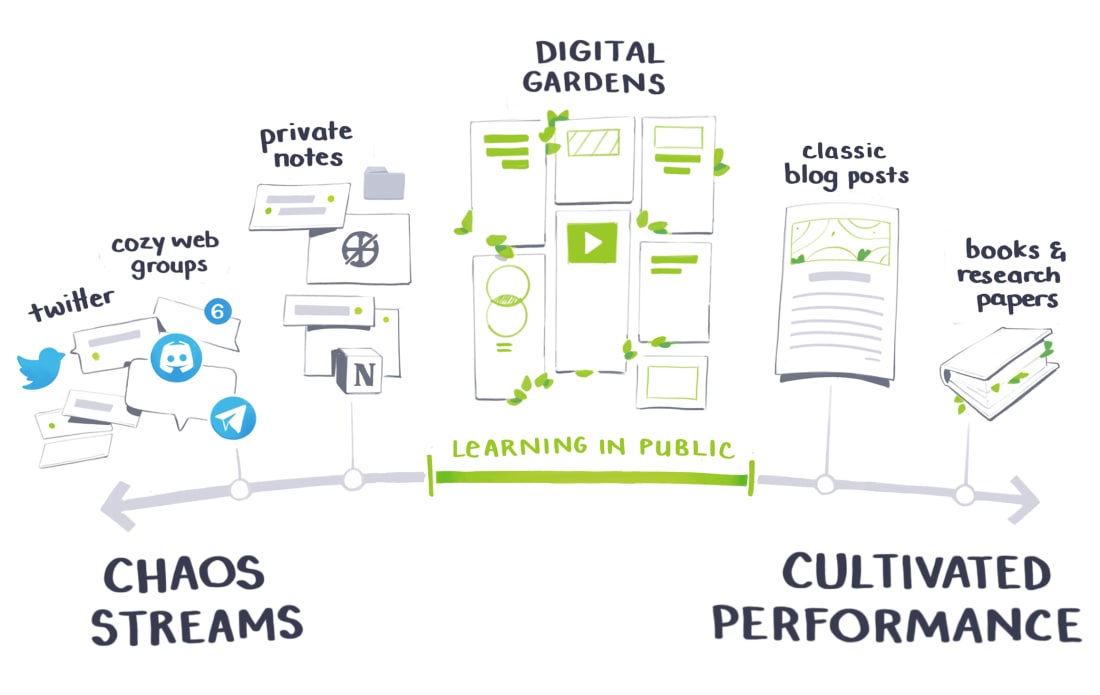Digital Gardening
Digital Gardening (Beyond Obsidian) for Non-Technical Folks
I came across Maggie Appleton's website with a nice balance between graphic and text. Her essay "Digital Gardening for Non-Technical Folks" is a great 30,000-foot overview. #list She also compiled this extensive list of all systems and tools beyond my limited exposure.
What is "digital gardening"?
A garden is something in-between a personal blog and a wiki. It's a collection of evolving notes, essays, and ideas that aren't strictly organized by their publication date. They're inherently exploratory – posts are linked through contextual associations. They aren't refined or complete - posts can be published as half-finished thoughts that will grow and evolve over time. They're less rigid, less performative, and less perfect than the personal "blogs" we're used to encountering on the web. - Maggie Appleton
Principles
Future-proofing of notes
Markdown is a smart choice.
Evergreen Notes 長青筆記
I wish starting physical businesses was easier; I wish the path wasn’t so steep, especially in places like the Bay Area; because I think it’s one of the absolute best things a person can do. Among many other things, a physical business enlivens public space, by making the simple, eloquent statement: I am here, working.
There’s a scientific glassblowing studio north of us; I walk past it on the sidewalk often. By simply existing, and having a nice sign that faces the street, they are doing a small public service every day. We are here, working.
In the same light industrial complex as the Murray Street Media Lab, there’s a woodworking shop, and the man who runs it always keeps his door propped open. Simple as that. What a delight, every damn day, to ride my bike past that door and peek inside and see all his tools, the boards stacked up for whatever commission he’s undertaking. I am here, working.
Part of the problem of social media is that there is no equivalent to the scientific glassblowers’ sign, or the woodworker’s open door, or Dafna and Jesse’s sandwich boards. On the internet, if you stop speaking: you disappear. And, by corollary: on the internet, you only notice the people who are speaking nonstop.
If you could put on magic internet goggles that enabled you to see through this gnarly selection bias and view the composition of reality fairly, correctly—well, just come walk around Emeryville and West Berkeley. It would look like that! All the tumult of Twitter would shrink into a single weird cafe—just a speck, in an enormous city made up entirely of people quietly working. - Robin Sloan
History
Maggie Appleton's excellent article on the history and ethos of the digital garden, which provides this wonderful illustration:

This harkens right back to the aforementioned "working with the garage door open" mentality.